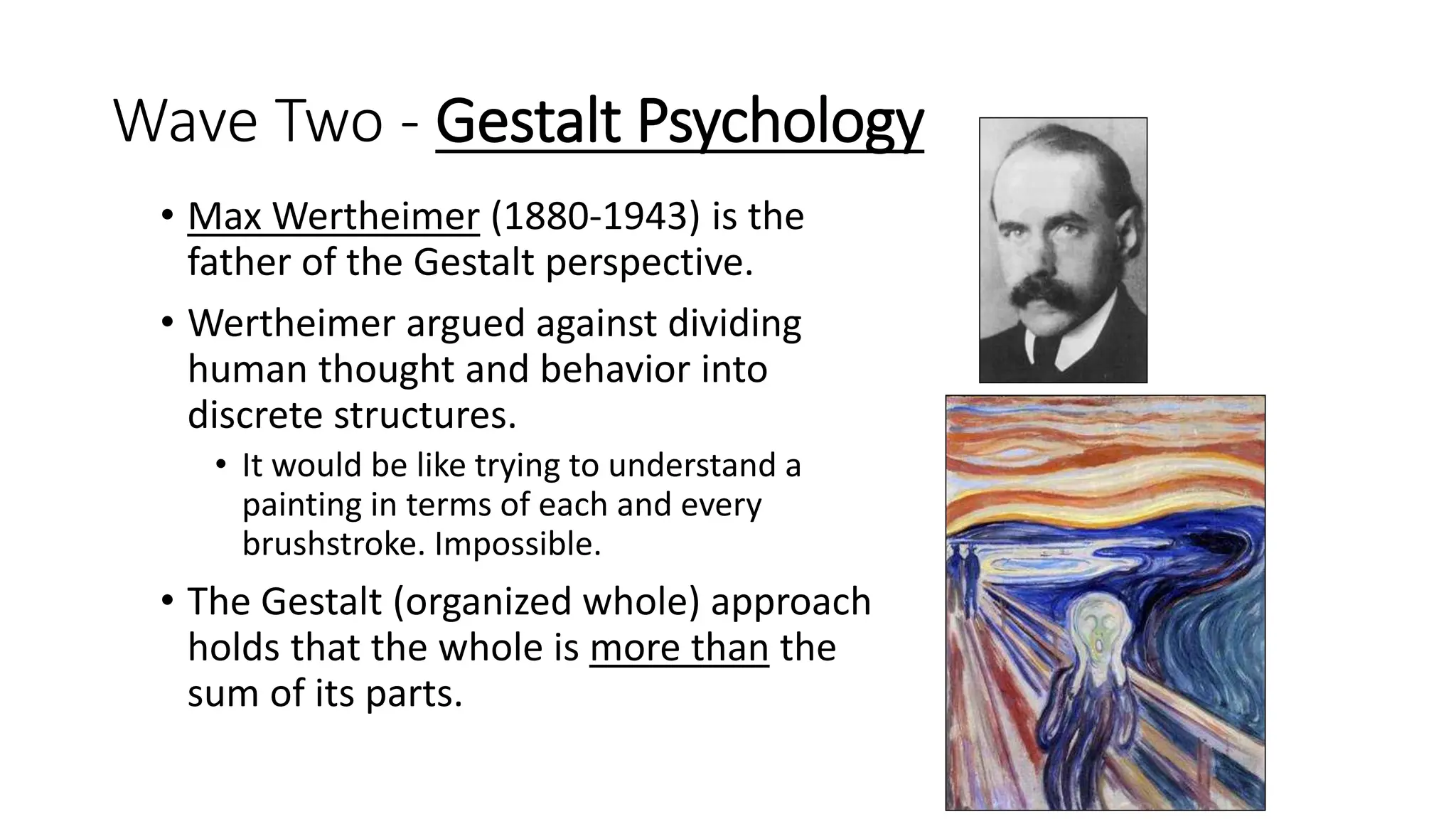The document provides an overview of psychology, defining it as the scientific study of mind and behavior, and tracing its historical development through various schools of thought such as structuralism, behaviorism, and psychoanalysis. Key figures like Wilhelm Wundt, Sigmund Freud, and B.F. Skinner are highlighted for their contributions to the field, alongside contemporary perspectives such as cognitive, humanistic, and biopsychological approaches. Ultimately, it emphasizes that modern psychology is eclectic, with practitioners drawing from multiple viewpoints to understand human thought and behavior.





















